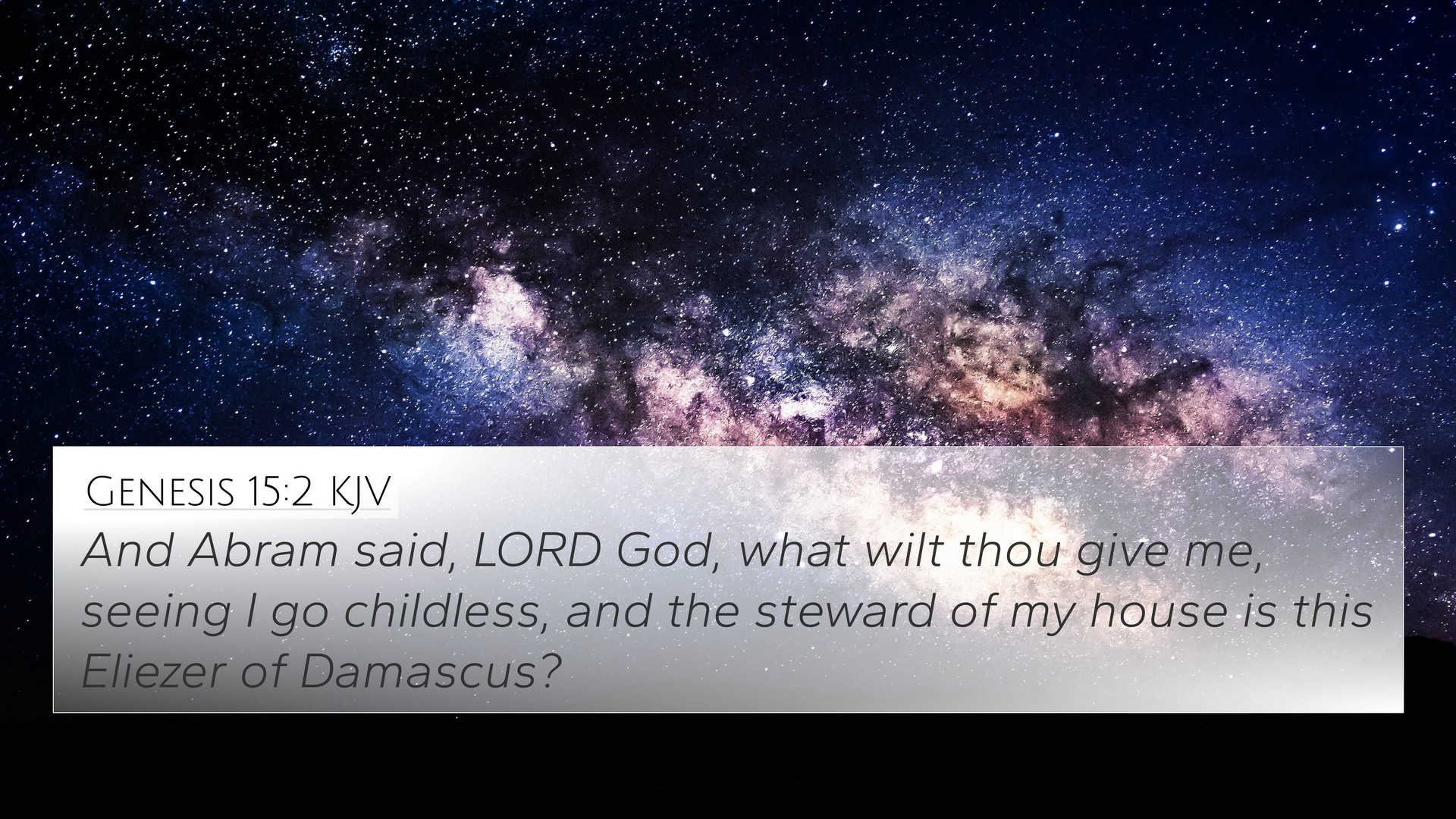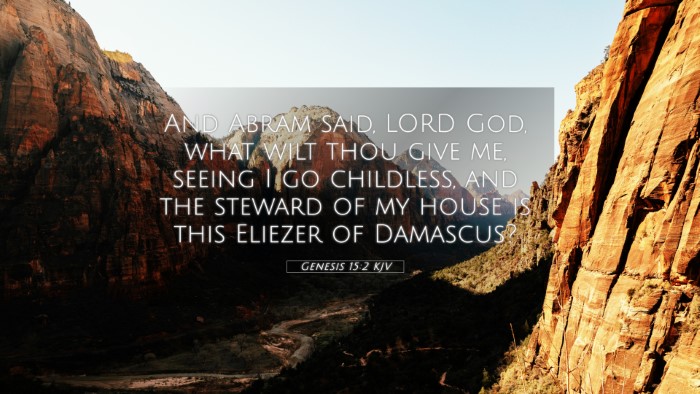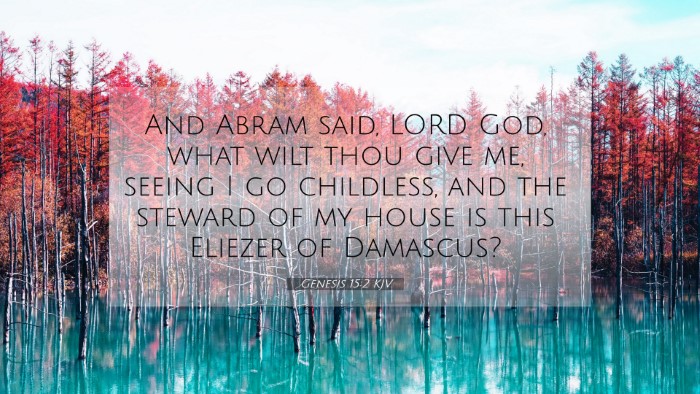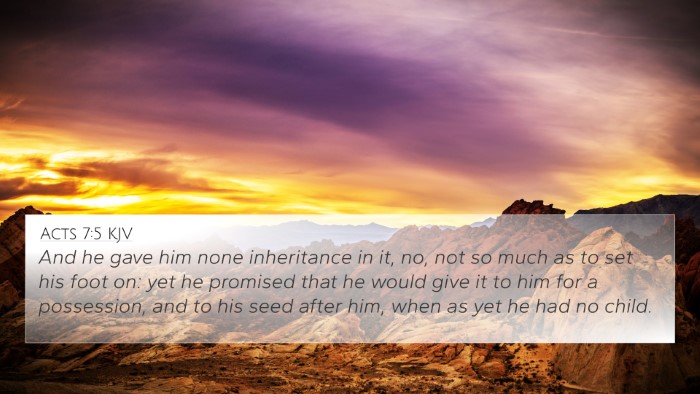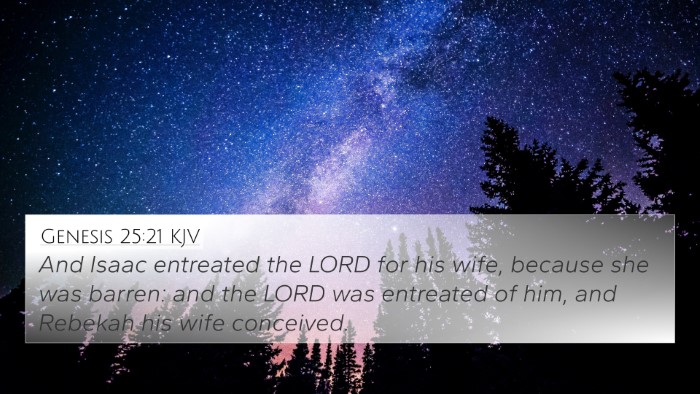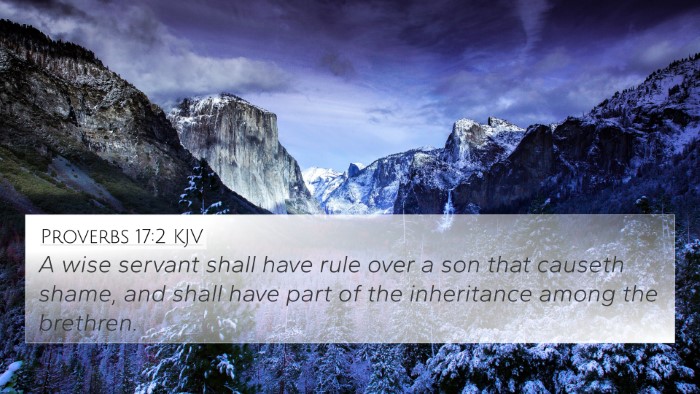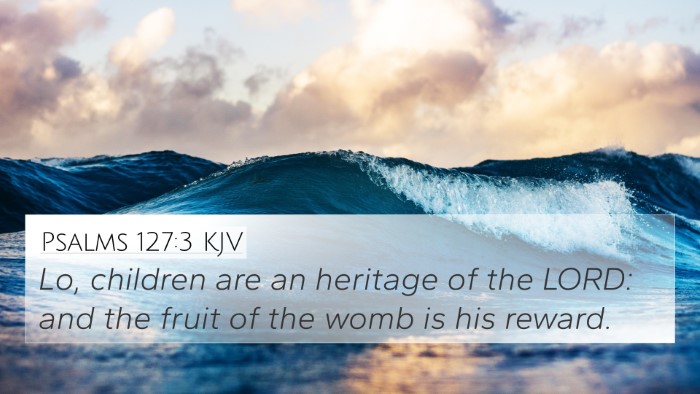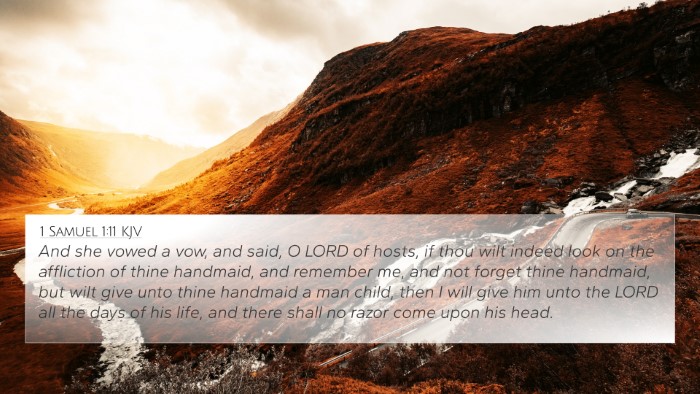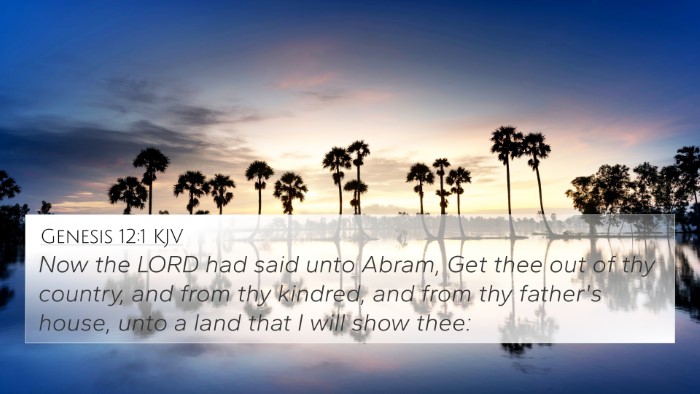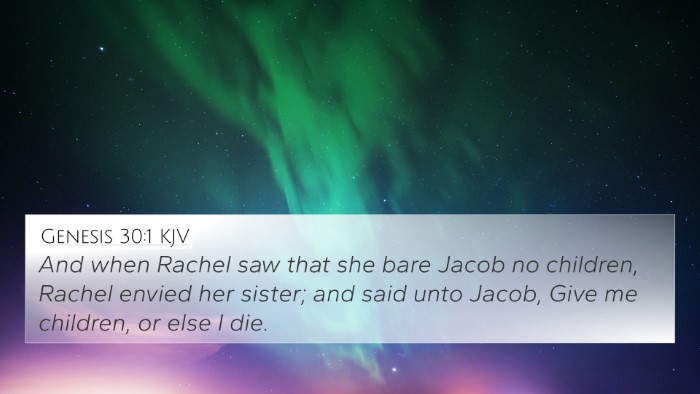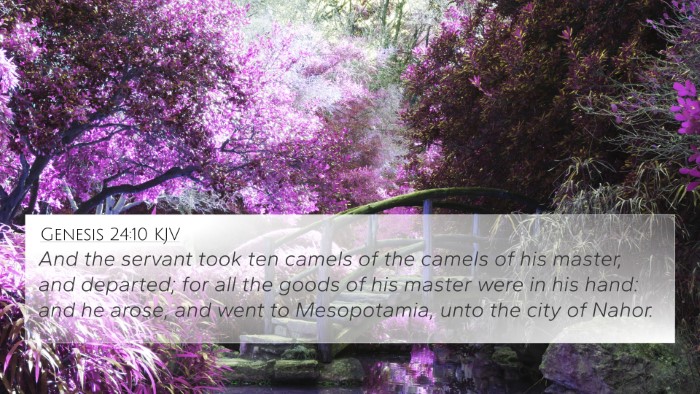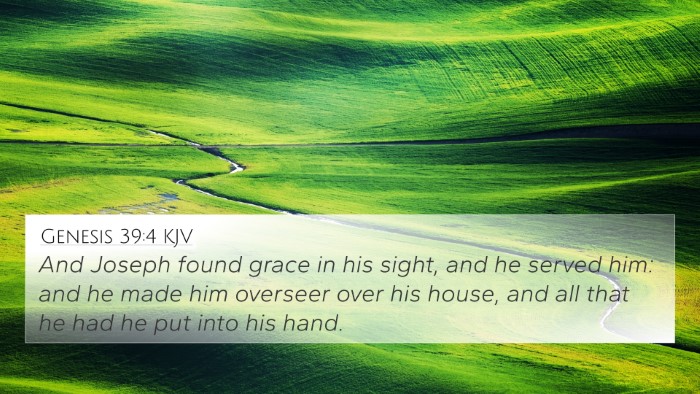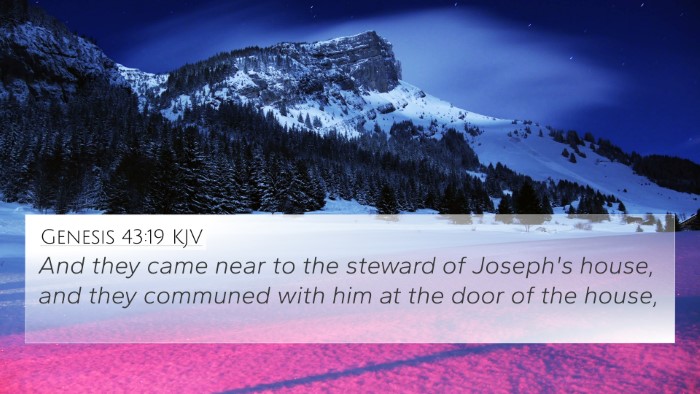Understanding Genesis 15:2
Genesis 15:2 states: “But Abram said, ‘O Lord God, what will you give me, for I continue childless, and the heir of my house is Eliezer of Damascus?’” This verse captures a moment of deep contemplation and concern from Abram (later called Abraham) regarding God's promises.
Verse Meaning Overview
This verse encapsulates several themes that are pivotal in understanding the dynamics of God’s covenant with Abraham. The expressions of doubt and concern illustrate Abram's human perspective amidst divine promises.
Key Themes
- Divine Promise: The promise of descendants is central to God’s covenant with Abram.
- Human Doubt: Abram’s question reveals his struggle to trust in the fulfillment of God’s word.
- Heirship and Legacy: The mention of Eliezer speaks to cultural practices surrounding inheritance and legacy.
Commentary Insights
Combining insights from renowned public domain commentaries:
-
Matthew Henry: He emphasizes that this verse illustrates Abram's faith, as he acknowledges God while voicing his concern. Henry also notes that it displays the tension between God's promises and present circumstances, which is a recurring theme in Scripture.
-
Albert Barnes: Barnes indicates that Abram's question is marked by a sense of dismay and a search for assurance. He states that the query indicates a need for certainty in God’s promises, linking this moment to Abram's faith journey.
-
Adam Clarke: Clarke focuses on the cultural significance of Eliezer, suggesting the implications of relying on a servant for an inheritance, reflecting Abram's feelings of inadequacy and the weight of divine promise for future generations.
Bible Verse Cross-References
Genesis 15:2 connects with several other Bible verses, enhancing our understanding through cross-referencing. Here are some notable references:
- Genesis 12:2: God promises Abram that he will make him a great nation.
- Genesis 16:2: Sarai's suggestion to use Hagar to bear children demonstrates human attempts to fulfill God’s promises.
- Genesis 17:4-5: God's reaffirmation of the covenant, changing Abram’s name, signifies his future as a father of many nations.
- Romans 4:19-21: Paul reflects on Abraham’s faith despite his old age and the apparent impossibility of having children.
- Hebrews 11:11-12: Amplifies Abram’s faith regarding childbirth when it seemed unlikely, drawing parallels to God's promise.
- Galatians 3:29: Suggests that those who belong to Christ are Abraham's offspring, highlighting the lasting impact of God’s covenant.
- Luke 1:37: “For nothing will be impossible with God,” resonates with Abram's situation, stressing God’s omnipotence in fulfilling His promises.
Connections Between Bible Verses
Through linking Bible scriptures, a rich tapestry of meaning emerges:
- Thematic connections: Highlight the complexity of faith, doubt, and divine assurance.
- Comparative Bible verse analysis: Examining the shift from human efforts (Genesis 16) to divine fulfillment (Genesis 21).
- Cross-referencing Biblical texts: Eliezer's role compared to the eventual fulfillment through Isaac, creating a narrative of trust.
Cross-Referencing Bible Study Tools
To further explore the themes encapsulated in Genesis 15:2 and its connections, several tools can aid in Bible cross-referencing:
- Bible Concordance: Helps locate and understand verses that relate to specific themes.
- Bible Cross-Reference Guide: Provides organized references across chapters and books.
- Comprehensive Bible Cross-Reference Materials: Offer in-depth studies and thematic explorations.
Tools for Bible Cross-Referencing
Utilizing a cross-reference Bible study system can enhance understanding:
- How to use Bible cross-references: Identifying and studying connections can provide greater insight into Biblical narratives.
- Cross-reference Bible study methods: Different approaches can lead to profound revelations about scriptural themes.
- Bible chain references: This technique allows for tracing themes through a network of related scriptures.
Conclusion
Genesis 15:2 serves not just as an isolated verse but as a pivotal moment that echoes throughout Scripture, encapsulating themes of faith, doubt, and the certainty of divine promise. Through methodical Bible verse parallels and inter-Biblical dialogue, this text teaches the faithful about the nature of God’s relationship with humanity, the significance of heirs, and the ongoing dialogue of faith that resonates from the Old Testament to the New Testament.
